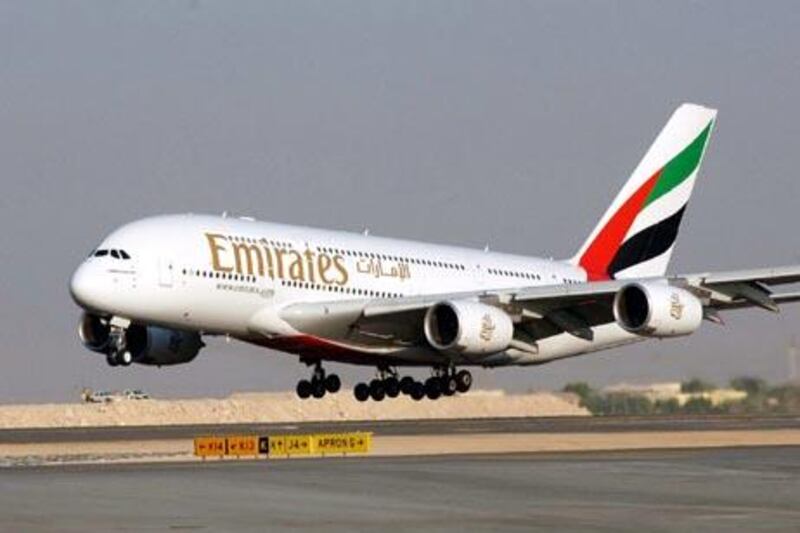Dubai is considering the privatisation of its most prized assets to raise billions of dollars for debt repayments.
"There might be a privatisation plan, which is something we're working on with the government," Mohammed al Shaibani, the director general of the Dubai Ruler's court and the chief executive of the Investment Corporation of Dubai (ICD), said today.
"Dubai is rich in assets and ... this might be used as a mechanism to reduce some of our debts in the future," said Mr al Shaibani.
The remarks came at the first of a series of quarterly updates on the economy of Dubai that aim to increase government openness on its plans after the financial crisis.
Mr al Shaibani told the Financial Times recently that there was no need for the government to fully own Emirates Airline, suggesting the comapny may be one potential candidate for privatisation. Dubai's lucrative ports operations are also said by many analysts to be ripe for a full or partial sell-off.
Dubai has sovereign debts of about $30 billion, Mr al Shaibani said. But Dubai's total debt load is thought to be above $100bn when debts of companies owned at arm's length by the government and by Sheikh Mohammed bin Rashid, the Vice President of the UAE and Ruler of Dubai, are included.
Bank of America Merrill Lynch analysts said recently that Dubai faced more than $40bn of repayments next year and in 2012. But Ahmed al Tayer, the governor of the Dubai International Financial Centre, said that "there is nothing to worry about as far as our ability to fulfil our obligations" on debt.
Mr al Tayer also reiterated earlier statements that Dubai did not need additional help from the Central Bank after the federal body pumped $10bn into the newly-formed Dubai Financial Support Fund last year. Abu Dhabi later added up to $10bn of its own support to the fund.
Much of that money went to support Dubai World, a state-owned conglomerate that recently completed a $24.9bn debt restructuring, which began almost a year ago. Dubai Holding, an investment group owned by Sheikh Mohammed bin Rashid, is now beginning a debt restructuring, although the process will be much smaller than Dubai World's.
Mr al Tayer's and Mr al Shaibani's remarks followed a speech from Sheikh Ahmed bin Saeed al Maktoum, the chairman and chief executive of Emirates Airline and the president of the Dubai Civil Aviation Authority.
The Dubai and Federal governments had taken appropriate actions in response to the global crisis, Sheikh Ahmed said, and much progress had been made since Dubai World announced a standstill on debt repayments last year.
"I am truly happy to report that Dubai World is now on a sound financial footing, and is fully re-focused on it's core business, which invariably will improve the long term value of its assets for the benefit of all stakeholders," he said.
"It is no secret that we are currently looking at Dubai Holding which is facing challenges in some of its assets and investments," he said. "The challenges in Dubai Holding are in no way of the magnitude seen at Dubai World. They are being addressed seriously and with diligence."
Looking forward, he said, Dubai "must adapt" to its changed circumstances and adopt "a new way of thinking" and a back-to-basics approach that focuses on its core ports, transport and tourism businesses instead of the leveraged investments in the West that were responsible, along with the bursting of the property bubble, for its current struggles with debt.
He said: "The slowdown that took place over the last two years gave Dubai the opportunity to rethink, regroup and return to basics in order to leverage on our core, tried and tested competitive edge."
The economic update was the first of what officials say will be a quarterly event. It represents a major step towards transparency for a government that has largely been mum about its plans and priorities following the financial crisis.
afitch@thenational.ae






